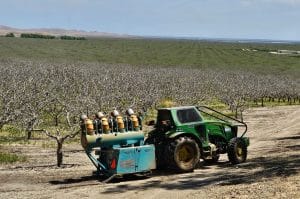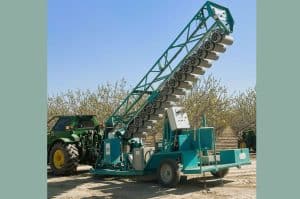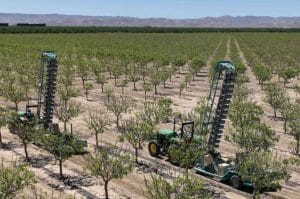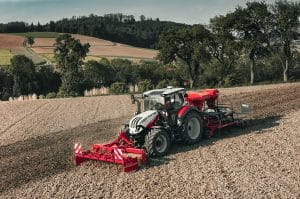Edete Precision Technologies for Agriculture has expanded its pollination areas in California, USA to more than 3,000 acres (> 1,200 hectares). This reflects the critical need for the precise delivery of viable and high-quality pollen at the right time of female bloom.
This comes at a time when changing global weather conditions are hindering natural pollination, resulting in reduced yields. When it comes to natural pollination in a pistachio orchard, growers frequently encounter three main obstacles: bloom desynchronization of male and female trees, low pollination rate and male tree juvenility. Female pistachio trees require adequate amounts of male pollen applied by the wind at the right time. This process depends heavily on the flowers of male and female trees blooming simultaneously, which can be affected by the number of chill hours the trees receive in the winter. Low chill in the winter means an increased likelihood that the males and females are not in sync.
Furthermore, climate change induced extreme changes in the weather during the flowering period, such as extreme heat or alternatively rain, can damage the quality of the pollen resulting in low setup. Male juvenility of young pistachio trees can cause lack of sufficient pollen and result in a smaller yield than optimal of young pistachio orchards.
Edete’s precision pollination as a service (PPaS) based on its proprietary 2Be mechanical pollinator and quality assured pollen, has garnered extensive interest within the agricultural industry for its ability to enhance yields and mitigate these risks. Edete pollinates pistachios from 2021. In the 2023 season, Edete’s services resulted in a 19% average increase in pistachio yield in Bakersfield, CA.
“Our rapid expansion of pistachio pollination areas in California reflects the growing momentum of Edete in precision agriculture,” said Eylam Ran, CEO of Edete. “This achievement is part of our commitment to revolutionizing agricultural practices and ensuring sustainable food production. We are proud to see our technology making a significant impact on crop yields and fostering agricultural resilience.”




















